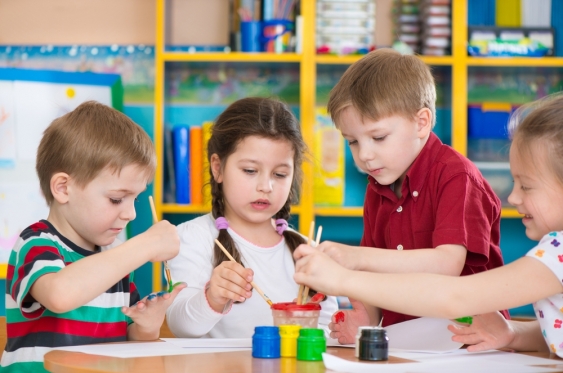When is the best age to start school? How about 7?
When to send a child to school can be a tough decision, but all the evidence shows that 7 is the optimal age for starting formal education.
When to send a child to school can be a tough decision, but all the evidence shows that 7 is the optimal age for starting formal education.

Stuart Snell
UNSW External Communications
0416 650 906
s.snell@unsw.edu.au
One of the biggest questions parents face is when to send their child to school. There are many factors to consider in Australia: is the child ready, will he/she be the youngest in the class, what kind of school, can we afford high child care fees, what are other mothers and fathers doing, and so on.
As an education expert soon to be moving to Sydney from Finland with my family, with two boys aged 3 and 6, these are the sorts of questions my wife and I will be considering very soon. I am aware that one Sydney school has decided it will only accept boys who have tuned 5. But for me, the evidence and personal experience from my home country are very strongly in favour that the optimal age to start a child in formal education is 7.
However, before the formal education starts, the research also shows that children benefit from a play-based early childhood program more than formal school-like instruction. Children aged 4 and 5 are more engaged and learn more in a play-based environment than they do if they go to school so young.
Having been part of building the education system in Finland and worked in education policy and research all my life, I’ve been able to study education systems across Europe and around the world. So, in considering my own boys coming to Sydney later this year, and if I had a blank canvass to design a school entry pathway, what would I do?
Well, there are three key things I would put in place. First, the "system" needs to be designed from a child’s perspective. The pathway needs to consider the needs of each child and the system needs to be flexible enough to adapt to the development stage and personal characteristics of all children. In Finland, education is all publicly managed. Equity of education is the key driver of education policy. It is high quality education and low cost. I would adopt this model.
Second, before any formal schooling begins, I would have a universal early childhood system in place where the child has a right to a play-based program of fun, physical activity and learning. This type of interaction is crucial because it allows a focus on whole-child development. Children learn social skills, creativity, empathy and how to use their imagination for learning. An important element is "school readiness" which means a school being ready for all kinds of children.

Research suggests children aged 5 and under learn more in a play-based environment than they do at school.
The third thing I would do is start formal schooling at age 6 at the earliest and plan the first grade so that it would be a smooth transition to formal schooling. We do this in Finland and in other Nordic countries. Our experience is that children benefit from this and are quite excited to start "real school" they undergo for the next 11 or more years.
The Australian school system is built on frequent measurements and checkpoints. In Finland there are no national tests. The only external examination that all students must take is the High School Certificate at the age of 18. Absence of national testing, like NAPLAN, frees parents and children from worrying about whether child is ready to go school or not.
There is no evidence that starting school early or having longer school days provides any benefits. And for those parents thinking of deliberately having their child repeat a year at school, research also shows that there are mostly downsides from doing this, such as leading to a higher drop-out rate and feelings of stigma and disassociation. And it is a very expensive remedy anyway.
Of course, there is no blank canvas to redesign any school system. But there are some important lessons from other school systems around the world. For me, most importantly is to ensure the pathway to school is a fun and play-based experience designed from the children’s perspective. Also important is to allow schools to adapt to the needs of the children and not work in a one-size fits all model.
Pasi Sahlberg has been appointed a professor of educational policy at UNSW.
This article was originally published in the Sydney Morning Herald. Read the original article.